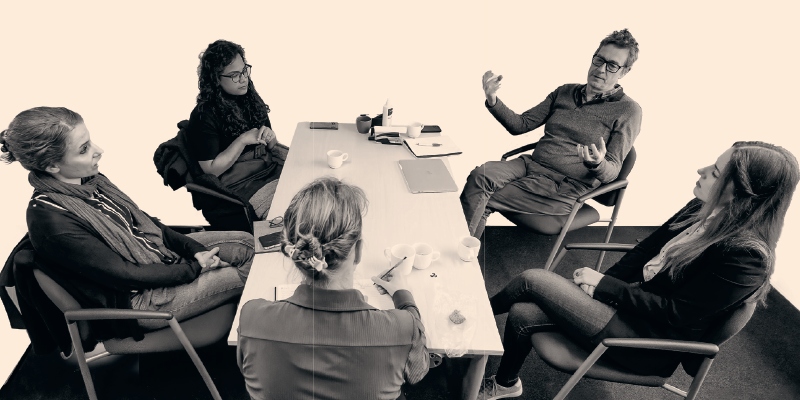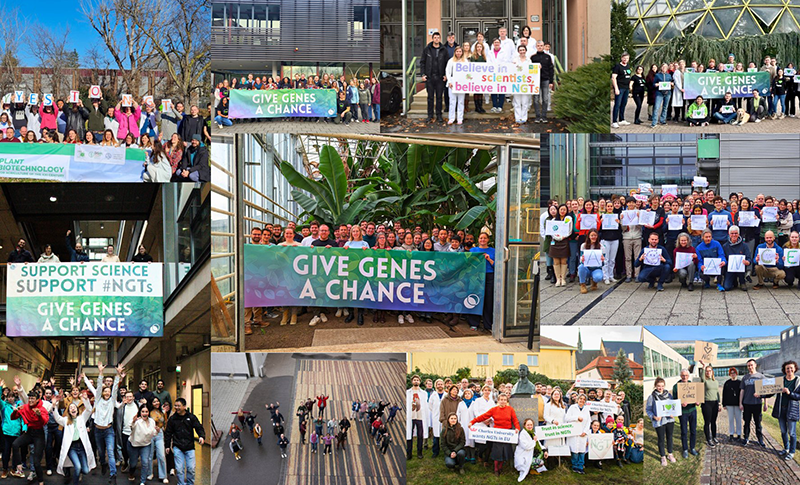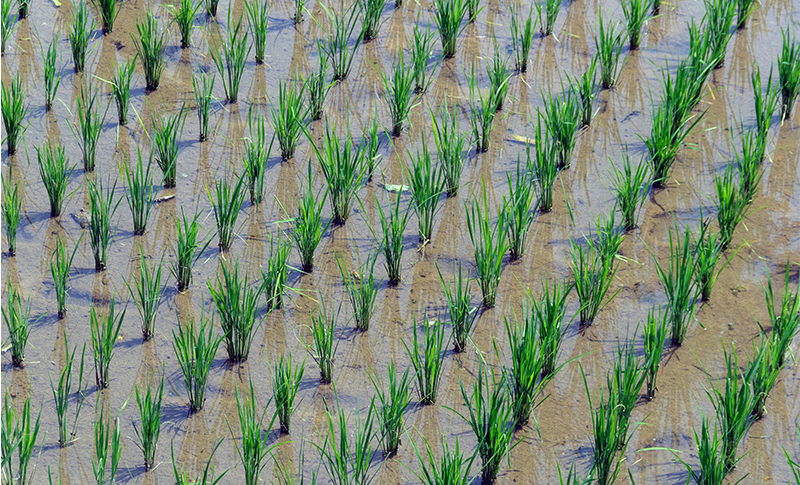The authorization of genetic modifications in plant breeding has been a controversial topic in European agricultural politics for years. Earlier this year, the European Commission voted in favour of easing the rules on genetically modifying crops using ‘new genomic techniques’ (NGTs), as they are termed. The response among politicians and in society at large has ranged from ‘relieved’ to ‘very concerned’.
Resource invited two plant scientists and two social scientists to talk about their contribution to the debate on NGT crops. Social scientists Michelle Habets and Phil Macnaghten have studied the various roles plant scientists adopt in the debate and have investigated the societal impact of new techniques. Patricija Gran and Nikita Sajeev are plant scientists involved in GeneSprout, a European organization of young researchers who aim to contribute to the debate on new techniques in plant breeding.
To kick off: what are your views on the application of the new plant-breeding techniques?
Gran: ‘I think authorization of these new techniques can help make world food production more sustainable.’
Macnaghten: ‘Many of the people I spoke to for my research have critical questions about NGT. They are afraid companies will use the techniques mainly to boost their own profits. I see the earlier development of genetically modified herbicide-resistant crops (see inset) as a worrying example of how the technology could be used.’
Habets: ‘I share those concerns. I don’t see much attention paid in the proposed rules to values such as fairness and sustainability in applications.’
Sajeev: ‘As a co-founder of GeneSprout, I have spoken to a lot of different groups in the NGT discussion. I see the new rules as a step in the right direction. The current rules for genetically modified crops are not appropriate for modern NGT crops.’
Should all experts get involved in this debate?
Habets: ‘We need plant scientists as they can explain what the technique involves and whether it is safe, but the debate is broader than that.’
Macnaghten: ‘In the social sciences, we look at the impact on society. This discussion demands different insights in addition to what plant scientists can offer.’
Gran: ‘I actually joined GeneSprout so that I could talk to stakeholders and find out what their worries are, what drives those worries and how we could address them. It is good to involve various disciplines in the debate, including environmental experts and social scientists, because we can learn from one another.’
Sajeev: ‘But not everyone can or wants to get involved in the discussion and I don’t think you should force them. If you take the wrong approach, do not bring the right nuance, that can make the polarization worse.’
Does WUR do enough to nurture such discussions between groups?
Gran: ‘I think we need more courses, workshops or meetings to bring scientists together. It should be something on our graduate school’s agenda, for instance. Everything we have done with GeneSprout could easily be adopted by the graduate schools.’
Macnaghten: ‘Scientists should be more like an honest broker and less inclined to take on a promotion role in which they talk enthusiastically about how wonderful their research is and what the advantages are. The honest broker role fits with being a scientist. It is a skill you can learn, and social scientists can help with that.’
Habets: ‘In that role, you don’t say which policy is best but you do provide information. It is then up to politicians to make choices.’
Should everyone make an effort to depolarize the debate?
Sajeev: ‘Yes. A lot of trust has been lost. We have done too little to connect with one another. If there is trust, you can still disagree but you are not kicking one another into a corner.’
Macnaghten: ‘It is interesting how the dynamics of trust works. People distrust how businesses and technology influence what they eat. They no longer believe new techniques will help improve their lives and health. The discussion in society should be about the bigger story — which techniques help solve the problem of feeding the world — and not so much whether the techniques are safe or not. That will get trust growing again.’
Sajeev: ‘We all want a better future but we don’t all have the same ideas about the path to get to more sustainable systems.’
How do you see that path to more sustainable systems?
Habets: ‘I think in terms of a less intensive agricultural system. When I look at the current NGT crops on the market, I don’t yet see evidence the new techniques will make agriculture more sustainable. It could equally be the case that the crops are used to maintain the intensive farming system. If we want to make proper work of extensive agriculture, we don’t need those techniques.’
Sajeev: ‘I see that as circular reasoning. If we can’t even try it out, how can we prove it helps?’
Habets: ‘Patents are another problem. They give companies power if the company can get a patent on the properties of a crop.’
Sajeev: ‘That is one of the issues in the debate in the European Parliament. The EU wants to prevent companies from being able to patent NGT crops, so that smaller companies can benefit from new, fairer rules. The current discussion makes me hopeful.’
Macnaghten: ‘Me too.’
Sajeev: ‘Let’s keep talking to one another about this topic. That is the most important thing. How about doing it over a beer or a coffee next time?’
New European rules
NGT crops are crops that have been genetically modified using new techniques like CRISPR-Cas. These crops are currently still subject to the strict GMO rules (for genetically modified organisms). Now the European Parliament has approved a new law that would allow authorization of these crops under less strict rules. Possible amendments are still being discussed, such as a ban on herbicide-resistant crops, rules on labelling and agreements on patents.
Roundup
At the end of the last century, the American soya bean breeder Monsanto used older gmo techniques to make crops resistant to the herbicide Roundup, the trade name for glyphosate. The idea was that the farmer could spray weed killer without affecting the crop. If Roundup was used correctly, this would dramatically reduce the amount sprayed. But it only took a few years for the first resistant weeds to appear, which led to an increase in the use of Roundup.

 From the left: Michelle Habets, Nikita Sajeev, Phil Macnaghten and Patricija Gran. At the bottom in the centre: interviewer Tanja Speek. Photo Guy Ackermans
From the left: Michelle Habets, Nikita Sajeev, Phil Macnaghten and Patricija Gran. At the bottom in the centre: interviewer Tanja Speek. Photo Guy Ackermans 

